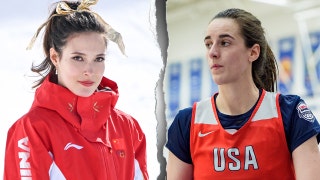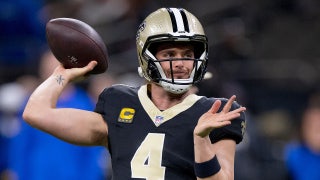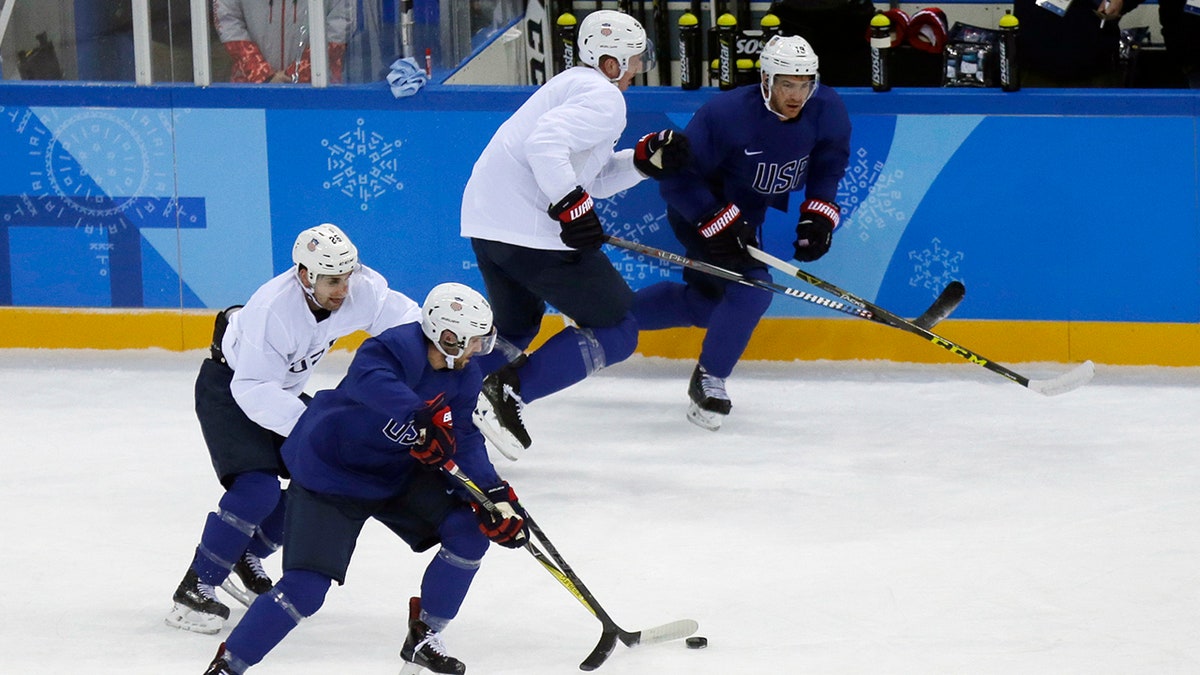
United State's Ryan Gunderson battles controls the puck against Mark Arcobello, left, during practice ahead of the 2018 Winter Olympics in Gangneung, South Korea, Friday, Feb. 9, 2018. (AP Photo/Kiichiro Sato) (Copyright 2018 The Associated Press. All rights reserved)
GANGNEUNG, South Korea – The "Miracle On Ice" was a Minnesota production.
If the U.S. pulls off another Olympic miracle, it would be a nationwide effort.
When the 1980 U.S. hockey team made up of college kids shocked the favored Soviet Union on the way to winning the gold medal, 13 players came from Minnesota, four from Massachusetts, two from Michigan and one from Wisconsin. The 2018 team couldn't be constructed more differently with players from 12 different states and leagues all over the world, though it has the same underdog approach from careers of being discounted and passed over.
"We're trying to prove some doubters wrong," goaltender Ryan Zapolski said. "We've all had pretty successful pro careers, I think, but we still have doubters, for sure. And I think that's a motivation for us. We've been overlooked pretty much our whole careers, much of us, so just in the back of our minds we still think of those times where people didn't give us the right chances and have this opportunity now to kind of take advantage of that."
Again, a team of Russians is the favorite even if it's under a neutral flag and again the U.S. is trying to end a lengthy gold-medal drought, which dates back to 1980. The Americans will try to do it with players from Massachusetts, New York, Michigan and Minnesota and some less-common hockey hotbeds: Pennsylvania, New Jersey, Colorado, California, Connecticut, Virginia, Florida and Arizona.
Three players come from Philadelphia suburbs alone.
"To have three kids from Philadelphia, you would never have seen on that 1980 team," said Brian O'Neill, a native of Yardley, Pennsylvania. "I think it just shows you how far hockey has come in the U.S. where you have a California representative, you have a Pennsylvania representative, Florida — you name it. I think that's just a testament to how good hockey's gotten in the U.S."
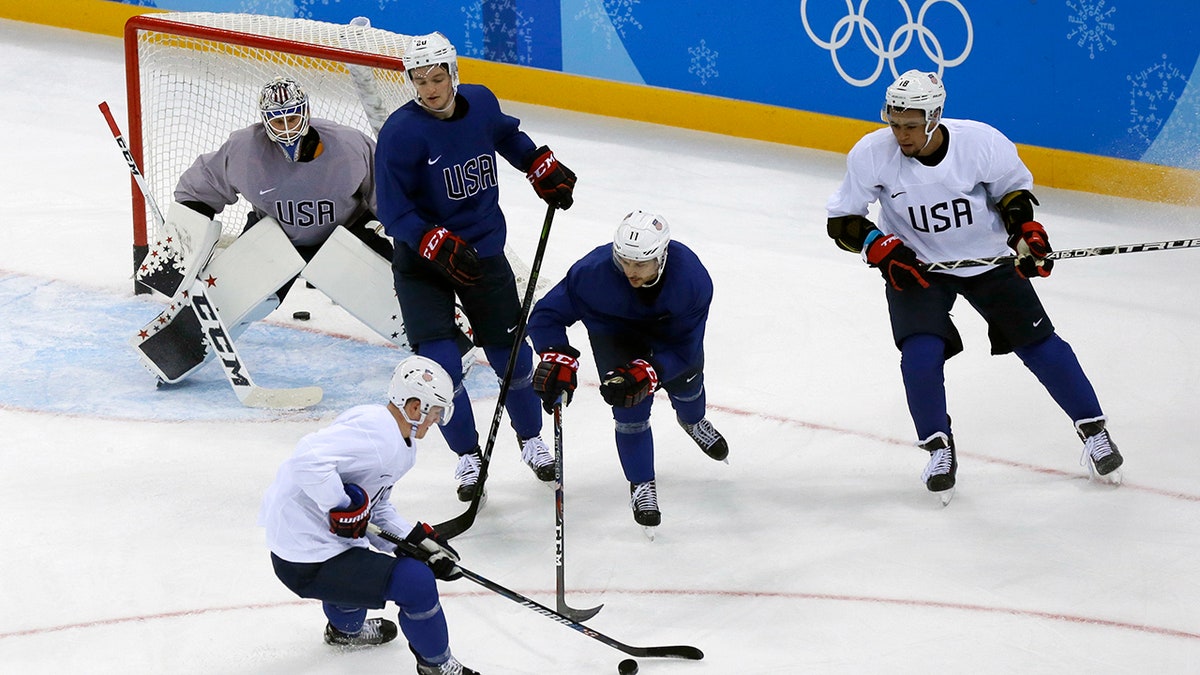
Again, a team of Russians is the favorite even if it's under a neutral flag and again the U.S. is trying to end a lengthy gold-medal drought, which dates back to 1980. (AP)
The NHL's expansion into the Sun Belt led forward Broc Little to start playing in Arizona, goalie Brandon Maxwell in Florida and defenseman Jonathon Blum in Southern California. As players seek to build chemistry quickly for a short tournament, they think the varying backgrounds can only help.
"There's different culture, there's different mindsets," Blum said. "(Players from) different states bring different things. Californians like to stay laid back and more easygoing, so I try to bring that to the room."
In the room, only captain Brian Gionta, at 39, is old enough to have been alive for the 1980 Olympics and is proud of the diversity on the 25-man roster. Winning gold in Lake Placid certainly had an effect on spreading hockey. Tony Granato, now coach, had teammates from Texas and Oklahoma at the 1988 Olympics, and the progression has continued.
"The '80 team was basically Massachusetts and Minnesota," Granato said. "It says that our game isn't as regional as it used to be, so I think that's a positive thing: players coming from all over the place."
Many of these players started from the bottom, now they're here. Zapolski, fellow goalie David Leggio and defensemen Matt Gilroy and Ryan Gunderson were all college walk-ons and now get to reprise that role by being thrust into the Olympic spotlight as NHL continues its season.
"All of these guys have had great paths to get to where they're at," Granato said. "It's different paths than Patrick Kane and those guys had from the last few Olympics, but they're all great hockey players."
Gunderson, one of the three Philadelphia-area products, said people back home often forget that no team in the tournament has an NHL player. But the Russians have stars Ilya Kovalchuk and Pavel Datsyuk, while the U.S. has 10 players — including all three goalies — who haven't played in the NHL.
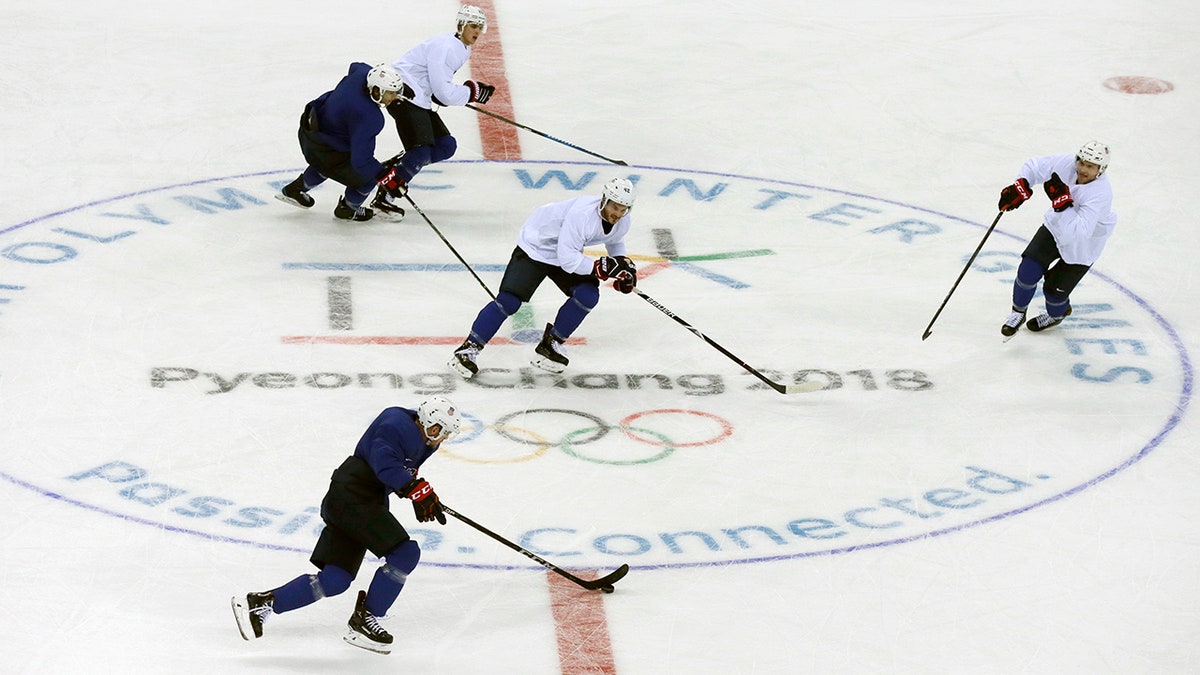
On paper, the U.S. doesn't stack up well against Russia, which draws players from just three Kontinental Hockey League clubs. (AP)
On paper, the U.S. doesn't stack up well against Russia, which draws players from just three Kontinental Hockey League clubs. Zapolski said he and his teammates are well-aware of the predictions that don't give them much of a chance.
"We're as good as anybody, but we know we're not a favorite out here so I think it's a little extra chip on our shoulder, too, going into every game, especially against a team like Russia," the Erie, Pennsylvania native said. "We know we're going to be big underdogs against them. I'm sure it's extra motivation."
The Americans are motivated by slights, but there's a reason they won't be putting on "Underdog" masks like the Super Bowl-champion Philadelphia Eagles: They think they can do some damage.
"You look at the rosters of some of the teams, obviously they've got some great players," Gionta said. "But where this team is at and the hunger that this team shows, anything's possible."






